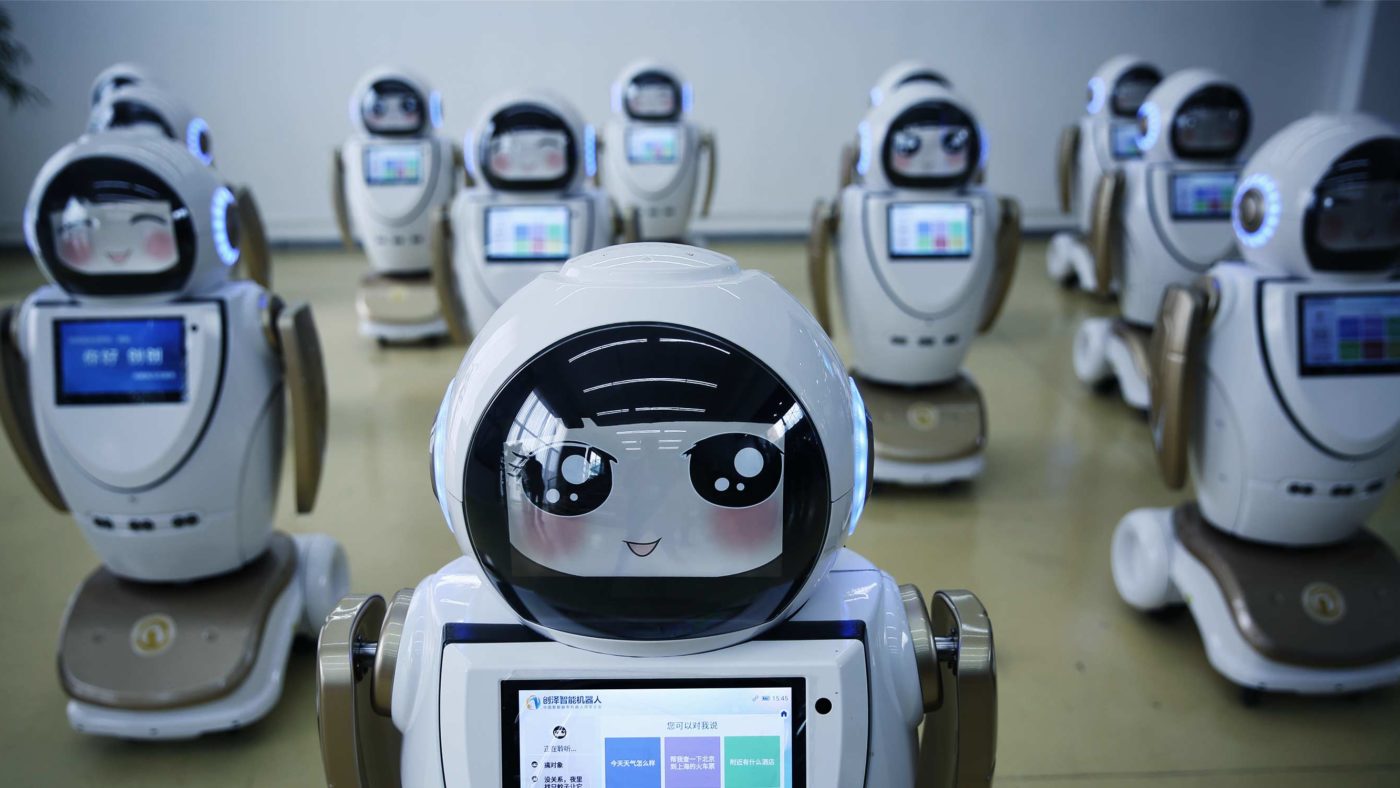That the robots are coming for all our jobs is entirely true. That this is a problem is less clear – after all, we’ve been trying to kill off jobs since we first started automating anything at all by replacing fingernails with knapped flint. Or perhaps more noticeably since we started using machinery more widely in the Industrial Revolution.
What happens next is something all too many get wrong, as John Naughton did with his piece in yesterday’s Observer.
His argument goes roughly like this: ordinarily new technologies create jobs to replace the ones they displace through new methods of production. This time though it’s all going to be different because the robots, the AIs, the algos, are going to be doing everything.
But this worry — which is shared by many others — depends upon a misunderstanding of the basic process of labour displacement.
What actually happens is that the new tech kills those old jobs and humans go off and do something else. Think about the first thing we really did mechanise, agriculture. In bygone days, some 90 per cent of the population ambled about in muddy fields to feed us all. Along comes the tractor and the combine harvester and there are now a mere 2 per cent of all Britons employed in farming.
If the standard story, that the new tech produces the new jobs, were true then 88 per cent of us would be making tractors and combines, which is clearly very far from the reality. It also wouldn’t make us any richer if it did happen. After all, 90 per cent of the population would still be involved in farming — the technology would have changed, but the overall result would be the same.
What actually happened was that 2 per cent of us remained in farming and the other 88 per cent went and did something different. We are now richer by the nursing, teaching, ballet dancing, North Sea oil drilling and on and on that we gain from the labour of those 88 per cent freed by the mechanisation of agriculture.
This is axiomatic in economics. Human desires are unlimited, yet we face a universe of scarce resources to sate those with. Human labour is one of those scarce resources. The proof of that is simple – do you or does anyone else have absolutely everything you can even dream of desiring which requires human work to deliver to you? No? Still short of a back rub, the peeled grape? Then there’s still a task or two for humans to do.
Or more seriously, there’s nursing, child care, more ballet perhaps, that freeing humans from current tasks would allow us to have more of. This process only ends when all humans have absolutely everything they could possibly desire. That would also be the end of economics of course, as we then no longer have a scarce resources problem. We wouldn’t even need to worry about jobs if all our needs had been sated already – it would be a veritable Eden (or Fully Automated Luxury Communism, perhaps).
Either way, we’re just not going to run out of jobs because robots have taken up a certain chunk of those that exist at the moment – there will always be other products and services to be furnished, some of which may not even exist yet.
There is, of course, another issue which Naughton touches on – the rise in inequality that would happen. Maybe.
The conceit here is that the plutocrats own all the robots then the plutocrats gain all the profits from the robots. We are left on the outside with just the crumbs as inequality rockets. Except this is not really how economies tend to work. Competition between the plutocrats rapidly brings profit levels and margins down, to the benefit of us consumers.
In Naughton’s nightmare scenario the robots are doing all the work and we humans are just appendages to the automated economy. Those who own the machines hoover up the economic gains until capital has a 100 per cent share of the economy and the rest of us are left with only a tiny slither.
What happens here as inequality soars? Fortunately, last year’s joint winner of the Nobel Prize, William Nordhaus, has crunched the numbers. He calculates that in this doomsday wages would go up by a cool 200 per cent. Triple every year that is. No, really, every December, we workers are three times better off than we were the previous January.
Even if Naughton’s worst fears came to pass, it would hardly be a problem that needed an urgent solution.
All of the current mithering about what’ll happen when the robots eat our jobs is based upon a simple misunderstanding of the process itself.
Those seeking comfort should simply observe history. When machines do what we humans used to then we humans are not only richer we get to go off and do something more interesting. Quite why this is a problem that needs to be agonised over, let alone solved, is a question that depends upon a simple ignorance of how the process works in the first place.
CapX depends on the generosity of its readers. If you value what we do, please consider making a donation.


